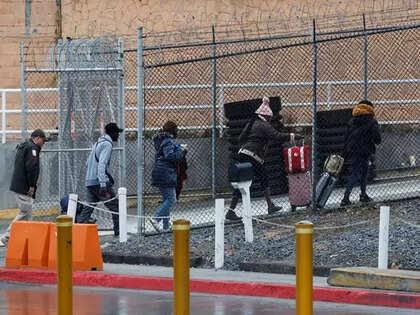The recent intensification of the U.S. crackdown on Russian assets has sent ripples through the global financial landscape, igniting what experts are calling a “zombie funds crisis” in the small Alpine principality of Liechtenstein. According to reports from TVP World, the tightening sanctions and asset freezes targeting Russian entities have left a number of investment funds in Liechtenstein stranded in limbo, unable to operate effectively or return capital to investors. As the principality is known for its robust financial sector and discreet wealth management services, this unprecedented standoff not only highlights the far-reaching consequences of geopolitical tensions but also raises urgent questions about regulatory oversight and the vulnerability of niche financial markets amid escalating international sanctions.
US Sanctions on Russian Wealth Destabilize Liechtenstein’s Financial Sector
The recent wave of US sanctions targeting Russian oligarchs and their concealed assets has sent shockwaves through Liechtenstein’s traditionally discreet financial sector. Known for its robust banking secrecy laws and as a haven for wealth preservation, the principality now grapples with an unprecedented surge of so-called “zombie funds” – frozen assets stuck in regulatory limbo. Financial institutions are struggling to navigate stringent compliance demands without clear guidelines, resulting in liquidity strains and a palpable erosion of investor confidence in the region.
Market insiders warn of cascading effects as this asset freeze disrupts not only Russian-linked portfolios but also tangential financial instruments closely tied to the principality’s economy. Regulatory friction and international pressure compound this imbalance, raising concerns about Liechtenstein’s economic stability moving forward. Key challenges include:
- Prolonged asset immobilization impacting fund performance
- Increased operational costs due to enhanced compliance procedures
- Heightened scrutiny from EU and US watchdogs on cross-border transactions
| Impact Area | Effect | Duration | |||||||||||||||||||||||||||||||||||
|---|---|---|---|---|---|---|---|---|---|---|---|---|---|---|---|---|---|---|---|---|---|---|---|---|---|---|---|---|---|---|---|---|---|---|---|---|---|
| Liquidity | Severe freezing of funds | Indefinite | |||||||||||||||||||||||||||||||||||
| Compliance | Increased regulatory burden | Ongoing | |||||||||||||||||||||||||||||||||||
| Market Sentiment | Erosion of investor trust
If you want me to help with anything else related to this content or need it formatted differently, just let me know! Liechtenstein Faces Growing Challenges Managing Frozen Russian AssetsLiechtenstein, traditionally known for its robust financial sector and strict banking secrecy, now finds itself entangled in the complications arising from the U.S.-led crackdown on Russian assets. The country holds a significant volume of Russian funds that have been frozen under international sanctions, but lack of clear regulatory guidance has turned these assets into what experts are calling “zombie funds” – capital trapped in limbo with limited prospects for resolution or repatriation. Financial institutions in Liechtenstein are grappling with compliance burdens while facing growing pressure from global authorities to enhance transparency and accountability. Amid mounting challenges, Liechtenstein authorities have outlined several focal points to address the crisis:
Experts Call for Enhanced Regulatory Framework to Mitigate Zombie Fund RisksFinancial experts are urging immediate reforms in Liechtenstein’s fund regulatory landscape to address the growing concerns around so-called “zombie funds”-investment vehicles that have frozen assets and limited liquidity. These funds, caught in the crossfire of the US enforcement on Russian assets, are increasing systemic risk and creating an opaque environment detrimental to investors and the broader market. Analysts emphasize the need for stricter disclosure requirements, enhanced monitoring mechanisms, and regular stress testing to safeguard against illicit asset entanglement and operational paralysis. Key recommendations put forward include:
In RetrospectAs the United States intensifies its crackdown on Russian assets abroad, the ripple effects are being acutely felt in financial hubs like Liechtenstein. Experts warn that the resulting “zombie funds crisis”-where frozen investments linger unresolved-poses significant challenges for the principality’s economy and regulatory framework. With international pressure unlikely to ease soon, stakeholders in Liechtenstein face mounting uncertainty over how to navigate the complex intersection of geopolitical sanctions and financial stability. The coming months will be critical in determining whether the country can adapt swiftly or become further entangled in the fallout from global tensions. ADVERTISEMENT |
















